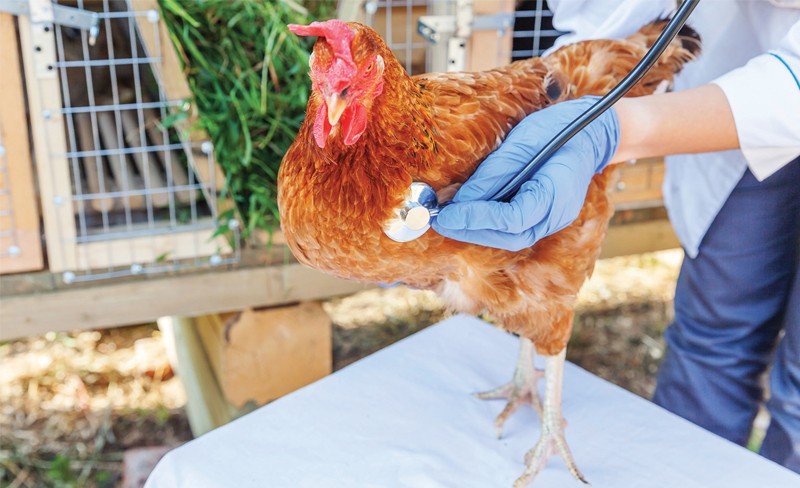Content available at: Tiếng Việt (Vietnamese)
Vietnam’s veterinary sector is emerging as a cornerstone in the national biosecurity system and the agricultural value chain, especially in disease prevention and control among poultry.
Its success in controlling avian influenza and improving livestock quality reflects the industry’s maturity, professionalism, and deep integration.
At the 75th anniversary celebration of the Vietnam Veterinary Sector, Deputy Minister of Agriculture and Environment Phung Duc Tien acknowledged the sector’s longstanding contributions to agricultural and livestock development.
Its proactive and effective response to dangerous diseases such as avian influenza, African swine fever (ASF), foot-and-mouth disease, and blue ear disease (also known PRRS) has helped stabilize livestock populations and bolster confidence among farmers and businesses.
Deputy Minister of Agriculture and Rural Development Phung Duc Tien speaks at the anniversary ceremony. Photo: Bich Hong/BNews/Vnanet.
Disease control and food safety
As the “shield” protecting the health of livestock and poultry, the veterinary sector has implemented wide-ranging disease surveillance and control programs.
Among these is the rapid control of avian influenza—a highly contagious disease with serious public health implications. This swift response minimized farm and economic losses and prevented cross-border disease transmission.
The sector also plays a vital role in ensuring the quality and safety of animal products. Poultry, in particular, stands out due to its large production volume and export value.
Applying international standards like HACCP, ISO, GMP, and OIE across all stages—from farming to slaughter, processing, and distribution—has enhanced product quality, ensured food safety, and expanded export markets.
Mr Tien stressed the need for:
- Comprehensive reforms, especially in disease prevention and control for poultry, livestock, and aquatic animals,
- Accelerated digital transformation,
- Scientific and technological advancement, and
- Enhanced capabilities in epidemiological surveillance, testing, and traceability.
These efforts are crucial to improving competitiveness and elevating Vietnam’s position in the global agricultural value chain.
Export opportunities, high standards
Vietnam has made remarkable achievements in livestock product exports, including:
- Exporting processed chicken meat to Japan, known for stringent quarantine standards,
- Establishing over 3780 disease-free farming chains and zones with tens of millions of poultry, and
- Building a solid foundation for long-term export goals.
According to Duong Tat Thang, Director General of the Department of Livestock Production and Veterinary Services, the veterinary sector also plays a crucial role in protecting public health by controlling zoonotic diseases such as avian influenza, rabies, streptococcus, anthrax, and bovine tuberculosis.
Information technology is increasingly used in quarantine procedures, improving management efficiency and enhancing transparency.
Key achievements:
- 440 operational centralized slaughterhouses ensuring veterinary hygiene and food safety.
- 12 GMP-WHO certified companies producing 218 types of vaccines for livestock and poultry.
- Nearly 8 million doses of ASF vaccine successfully produced-demonstrating technological self-sufficiency.
Nguyen Thi Huong, President of the Vietnam Veterinary Science and Technology Association, called for stronger collaboration among research institutions, training centers, regulatory bodies, and businesses.
Vietnam’s veterinary sector development is not only aimed at protecting livestock—it also plays a vital role in food security, public health, and sustainable development.

